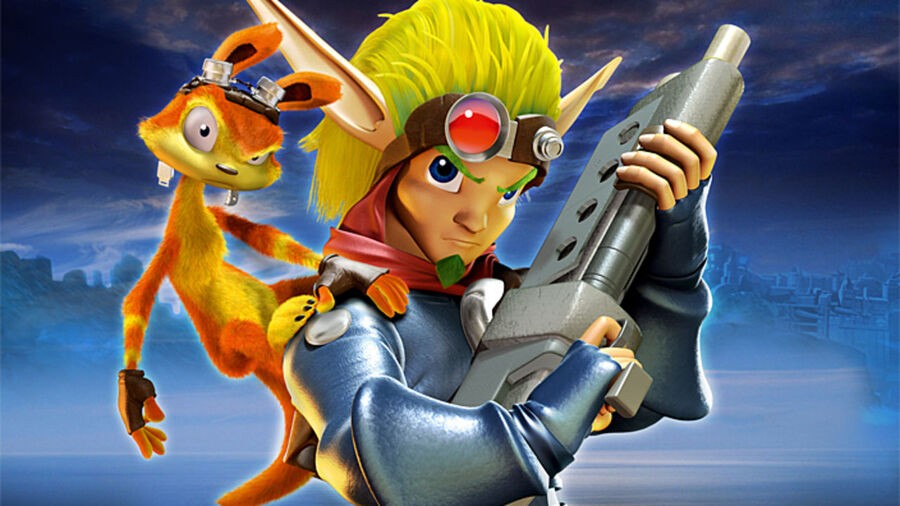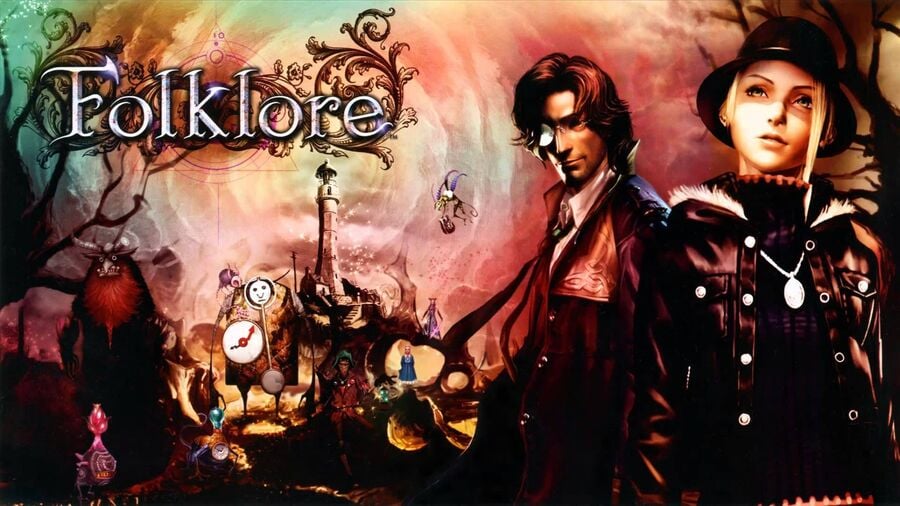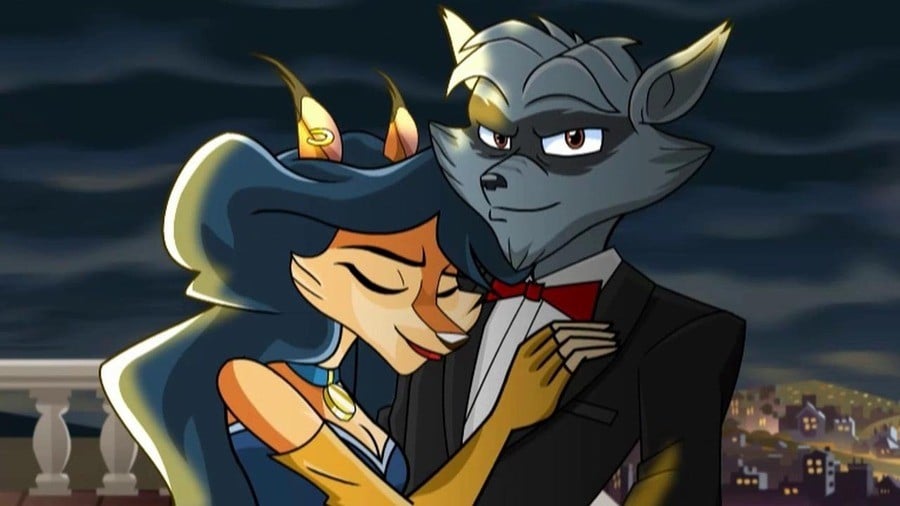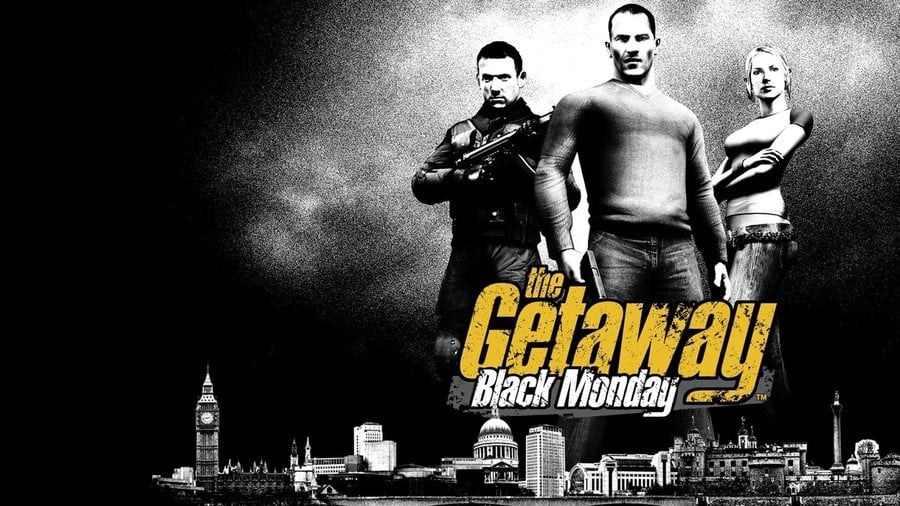
Unlike its competitors, Sony reinvents itself with each subsequent generation. There are franchises that have stood the test of time, but generally we see the platform holder evolve as it transitions from console to console. Aloy, for example, will very likely be the poster child of the PlayStation 5 – a household name who only got her debut game a couple of years ago.
While the frequent makeovers help to keep PlayStation feeling fresh, it also means that a lot of loveable series get left behind. Venture into any enthusiast forum, and you’ll find people begging for a new instalment in The Getaway or a continuation of the Sly Cooper franchise or a MotorStorm reboot or an Ape Escape revival. The list goes on and on.
Subscribe to Push Square on YouTube167k
The problem is that Sony has limited resources, and between developing brands at their peak (like The Last of Us), creating new intellectual property (like Ghost of Tsushima), and pushing fresh technology (like PlayStation VR), there’s not always opportunity for that Folklore follow-up you long for. But could the company potentially license out dormant brands to willing publishers and developers?

SEGA, in many ways, has become a very interesting organisation. Best known for Sonic the Hedgehog and the 16-bit days, the company’s quietly become a PC powerhouse, consistently putting out big hits like Football Manager and Total War. But the Japanese firm’s also recognised that it has a stable of sensational IP under its umbrella, and it’s starting to license them out.
Look at Shenmue III, for example – the long-awaited sequel to Yu Suzuki’s coming of age opus. The game has been crowdfunded by fans, with a new development studio fronting production duties. It’ll be published globally by Deep Silver, with SEGA uninvolved. Yet, the original creator still retains rights to the franchise – it’s simply licensing the brand to Ys Net et al.
Streets of Rage 4 is another example of this strategy. The game is being developed by Lizardcube and Guard Crush Games, with French firm DotEmu handling publishing duties. SEGA is involved to an extent, but once again it’s acting as a licensor, dishing out brand rights rather than dirtying itself in the game development trenches.

There are downsides to this approach, of course. We have no clue whether Shenmue III or Streets of Rage 4 will be any good, and should they release in a sub-standard state, then they could effectively damage their respective brands. With SEGA maintaining a hands-off approach, it doesn’t have a whole heap of input into the creative direction of these titles.
But the alternative, potentially, is that they don’t exist at all – and that’s certainly the case for a lot of Sony’s dormant franchises. What if a decent developer and publisher duo came to the PlayStation maker and pitched an enticing Jak & Daxter project? There’s an argument that, if it has no plans to make its own entry, it could license the name out and keep the series alive.
Developers, generally, like to create their own franchises, and that’s understandable. But there’s also opportunity here should the platform holder allow it: to work with established brands that already have large fanbases. SOCOM is one series that’s talked about a lot – signing a licensing agreement with Sony could give an otherwise unremarkable military shooter the kind of attention that it needs.

We think it’s an interesting suggestion. The company has a licensing program for merchandise and accessories, and it’s spawned a wealth of “official” products, from wallets to tea cosies. But why not extend that same philosophy to game development, and allow passionate teams to bring back PlayStation properties that have spent far too long in the archives?
It’s clearly not opposed to the idea, as Harmonix crowdfunded and released Amplitude on the PS4 and PS3 a few years back, and that’s an IP that the manufacturer owns. So why not do this more often? As long as the pitches are good, then what is there to lose? Developers get to work with well-liked series, Sony’s able to keep ancient IP alive, and fans get the franchises they’ve been asking for.
Do you think licensing out certain series to third-party developers and publishers could work in Sony's favour? What sort of franchises would you like to see treated in this way, and which developers and publishers do you think would make a good match? Bring an old brand back from the dead in the comments section below.





Comments 61
I mean Nintendo does it and other companies do it
Why not Sony do it? It would add more and it could work starting with PS5 if not cross Gen releases...
Yeah, Nintendo has been doing it since at least the GBA and Microsoft since the dawn of time given they didn't own Playground until recently.
Sony is the only one of the three willing to sit on stuff for so long, a good strategy but also means the brand shifts and can leave people behind.
I'd argue much like a balance between first and third party titles is essential, so is a balance of legacy and new. Sony doesn't have a good hold on legacy, just as Nintendo doesn't have a hold on new.
Many of the old properties could have the remake/reboot treatment (specially PS1, PS2 and PSP titles) akin to Ratchet, Crash, Spyro and RE2.
I would like to see a reboot of the Getaway, ditching the open-world and focusing in the story.
As long as the game's good I think there's no problem.
@Knuckles-Fajita @Derpie1 I'm not talking about outsourcing; I'm talking about licensing them out. Sony obviously has had plenty of external developers work on franchises, but it's still acted as the publisher.
In scenarios like Streets of Rage 4 and Shenmue III, SEGA isn't even the publisher.
No new Motorstorm is a shame. I wish Sony would just buy Insomniac so a second team could reboot Resistance. Freaking awesome shooter series.
@get2sammyb ah.
give me sly Cooper 5 syphon filter and resistance 4 .word up son
@Nyne11Tyme resistance don't need a reboot.give me resistance 4 .word up son
Sly Cooper: Thieves in Time is great and it was made by Sanzaru, sadly the game didn’t sell well, but I would love a sequel and more Sly Cooper.
Sony should make more mid-tier games, it’s difficult to find these titles on this generation. Keep making AAA single-player games and VR titles, but also include mid-tier titles as well.
If I ever met any of the PlayStation higher-ups in person, I would beg them for a new Sly Cooper game. The last one was really good.
I think yes as the original studios have moved on with regards to many of the franchises listed, but I'd still have quality concerns, so I think Sony would have to be careful with who they gave the licences to. Would love to see another Sly Cooper or Jak and Daxter though. As for The Getaway, then I loved those in my childhood, but would rather see a decent remastered collection rather than a new entry.
@playstation1995 hell yea. Give me 1-3 remaster for the millions who no doubt missed it and continue on to 4
Jax and Daxter and Sly Cooper do not belong to Sony in any way. So we could easily see remasters done in a few more years show up on all the systems.
I'm firmly in the Maybe category. I'm ok if it actually does justice to the series, but it's not guaranteed to work. Not a perfect example, but Sly Thieves in Time came out of "dormancy", and proceeded to be a low point for the series, and that was actually published by Sony.
I'm also of the opinion that not every dormant series needs to return, as some either wrap up their story or just did what they came to do. I wouldn't mind if a series I like such as Jak or especially Sly returns, but it has to live up to the quality the rest of the games set, otherwise it's better of sleeping.
What would be the harm of releasing a bad follow up to Folklore or Jak? Sure it would damage the IP, but as those franchises have been dormant for a decade and Sony seems to not be interested in expanding on them, who cares? I'll take the roll of those dice.
@Nyne11Tyme resistance 4 launch with ps5 wow😀👍😳😇.that would be awesome
@Nyne11Tyme word up son
Please Sony, give us a socom 2 reboot!
Sony has a lot of great left-out franchises but what I want are Freedom Wars 2, Folklore 2, Socom 5, Modnation Racer 2 and Soul Sacrifice 2.
@get2sammyb You mean like those recent Mario and Star Fox titles?
@steventonysmith lolwut? Both series belong to Sony.
other developers yes, other publishers not so much. i just don't think that's a good idea.. if a series is identified with your brand, keep it that way. right now, i bet sony wishes it had held onto crash and spyro..
@Knuckles-Fajita Ugh, don't let me start with Star Fox. We were waiting for so many years a new game of the series, and then they release Zero. Now the series is on ice again thanks to this game.
Btw, I really enjoyed Star Fox: Assault and Adventures.
@PS_Nation
Jax and Dexter was made by Naughty Dog just like Crash Bandicoot it too could see life on another console.
Sadly I misspoke about Sly Cooper games. They were made by Sucker Punch who is owned by Sony.
@playstation1995 Really loved the first and 3rd Resistance even Platinumed Resistance 3.😃
I found part 2 dissapointing the story mode was good though.
I really REALLY want Bluepoint to be remaking the Syphon Trilogy (or Pentalogy if they are mad enough to go all in). As far as I know they haven't announced what they are working on, just that "it was bigger" than SoTC. Other than that, Tombi(a) needs a remaster. I have got my Spyro and Crash (AND NOW CTR THANK GOD) back this gen, so I'm good.
@PS_Nation I meant that Ubisoft one.
I'd love them to do it, but only for certain companies that will put the love into them. Ubisoft did good with the Mario and Rabbids title on switch, and they brought back Star Fox (in a small way) to Starlink. I'd love to see a new Ape Escape, Hot Shots Tennis, Summer Heat Beach Volleyball, Sly Cooper, Daxter, Secret Agent Clank, Loco Roco, Patapon, Folklore, Lair (yup, could see this one happen for VR), Sports Champions, Eye Pet, Tourist Trophy...list could go on and on. Let Sony work on the BIG titles, let other companies come in and lay their hands on the others...no matter what, Sony and the other company will still make their money, and it puts even more exclusives on the table for their console. Granted, we wouldn't see many of these happen until the PS5 and 2020 era, but I could see various companies picking them up. Sega needs to start doing it more too, granted most are coming back, the Genesis had some great first-party IP's and so did the Dreamcast (and the dreamcast didn't really get it's chance too much, granted some of the titles were re-released on Gamecube and PS2 and the sequels on XBOX). This is something many companies need to start doing.
I just want PS All-Stars 2!
@get2sammyb Guess who's going to have to write another Uncharted film article...
@steventonysmith dude Sony owns the Jak and Daxter Ip unlike Crash it was the first game naughty dog made after sony had bought them back in 2001
@nookie_egg
@JLPick Those are some excellent examples in your comment. Rabbids is a perfect instance of where a brand has been licensed to a third-party to create a really successful product.
Great comment!
Jumping flash, they could source that out to 'Bungie' - get it...bungie. Ok I'll go away.
Could Sony not afford to set up its own, dedicated 'nostalgia' department? A separate division for the next generation, dedicated solely to doing something with their old franchises.
@Areus
Sony didn't buy Naughty Dog, they are their parent company but they are not owned by Sony. They simply struck a deal to publish their games on Sony systems and seem to be ok with that but in no way is Jax and Dexter or any of Naughty Dog's creations owned by Sony
@steventonysmith Your Trolling right
If that means more Knack games I'm all for it!
@Areus
No just knowledgeable and this information is readily available for you to do your own research
@steventonysmith And if you were knowledgeable like you say you are you would know that Sony bought naughty dog back 2001
@Areus
Care to tell me where you got this information from?
@PS_Nation D-d-ddddddid you say you enjoyed Star Fox Adventures!? 👀
Well that’s a unpopular opinion if I heard one cus I remember massively people hated that one...
@steventonysmith Google it their was an interview a few years back by one of the founders talking about how selling the studio to Sony was the right decision
I still have Folklore on disc there is no way I'm getting rid of that game it's one of my favourite games on PS3. I loved the way you use the sixAxis to capture IDs of the folk and use them to attack. But I would love to see them come back with older franchises but quality would be my main concern
@DLB3 Well it sounds like an Uncharted without Naughty Dog is in development. But yeah, bit different to the scenario I'm proposing in this article.
Man... reminds me how I need to finish Folklore.
Personally Ive little fondness for even the cuter IPs of Sony’s.
Perhaps others take a different view. Sony seem to burn through one fad after another, so fast, that very few have lasting appeal when you look back at them. Even Crash Bandicoot and Spyro feel old, despite the new HD games being impressive works. Very little got me enthused enough to buy them.
Sure, they could lease them out, but I dont know that they do super well... especially coming out as second hand, alternative developer, efforts.
@Derpie1 Lol, that’s true, I know that many don’t like Adventures, it’s not a traditional Star Fox, but still is a solid action (3D platformer?) game.
I never finished the game though, would love a remastered version, but that’s probably never going to happen.
I hope they revive their old franchises. Ratchet & Clank, Jack & Daxter, the good stuff. That’s what I miss about the PS2 era, the games were games and not interactive movies. They were really fun to play and from what I remember the developers weren’t trying to shove their political crap into it, nor did they constantly use profanity to make the game seem “mature” (I’m looking at Brok) If they aren’t going to do anything with their games then give them to someone else.
@Ackbar7 that's a very good point, some older and slightly forgotten franchises have nothing to lose and everything to gain. If an outside studio makes a crappy sequel to an old IP then Sony take way less heat for it but if it does well then everyone's a winner right?
@JLPick ah man I completely forgot Lair even existed, honestly I was a bit worried for the ps3's future after that one! That's a good memory you got there pal.
as long as Sony licences the games out to Japanese developers i have no problem
It depends on so many things. How much Sony gets involved, the budget, the developer they choose, how much freedom they give a developer, etc...
It could be a train wreck like the Nintendo licenses on the CD-i with the wrong dev and too much freedom, but it could end up the same way with too much involvement from the license owner (Looking at you Star Fox Zero)
@Flaming_Kaiser resistance 3 was great. shame it didn't sell well enough, especially compared with the first one, because it was easily the best of the series.
@steventonysmith - "By then Naughty Dog was looking to develop games for Sony and not be constrained by Universal Interactive. Since Universal held the rights to the Crash Bandicoot series, Naughty Dog could not develop future games in its own right. The studio would be bought out by Sony to avoid a repeat while it focused on developing the first game of the Jak and Daxter series.". moreover, Jak and Dexter is sony's intellectual property.
@Infinite_J_777 Wasn't the best game, but could definitely be redone to work with the VR. Would be a neat idea to have the VR on and take on the role of a dragon. It wasn't that bad of a game, just for back in the days, the controls seemed to get sloppy. I could see Little Big Planet made for the VR too, that would be another one that could work since Astro Bot seemed to work well!
A Good amount of titles could be made for the VR too, giving some of them a new audience for the ones that never got into the MOVE...Eye Pet, Sports Champions, Kung Fu Rider, TV Superstars, Start The Party, Carnival Island, Little Big Planet (any would be neat to see), Lemmings (definitely could work), Daxter (a PSP remake to work with VR)...heck, even a Twisted Metal VR or even Syphon Filter VR could work. Surprised that Sony doesn't bring more of their franchises to the VR. Hopefully, when the PS5 releases, and if they release a new VR head set, more titles will be added...at least a sequel to Astro Bot. Maybe a new Knack could come to the VR too.
I'm surprised they haven't done anything with The Getaway in forever.
I'd be totally down for a Sly Cooper HD Trilogy, like Spyro and Crash.
@steventonysmith Lol. Wut. You have no idea what you're talking about.
Show Comments
Leave A Comment
Hold on there, you need to login to post a comment...